15 Things That Make Dogs Act Like They Haven’t Eaten In Days

The way a dog looks at food can fool anyone. One glance, and it’s easy to assume they’re starving. But there’s usually more at play. Some reasons are instinctive. Others are learned or quietly medical. This article reveals the surprising forces behind what might seem like a never-ending appetite show.
Labrador Retriever Gene Mutation

Hunger can be hardwired. Scientists at the University of Cambridge discovered that nearly 25% of Labradors carry a gene variant that disrupts satiety signals. Even when full, they behave like they’re starving. Appetite here isn’t behavioral or environmental, it’s molecular. Their bodies shout louder than their stomachs ever could.
Misjudged Portion Sizes
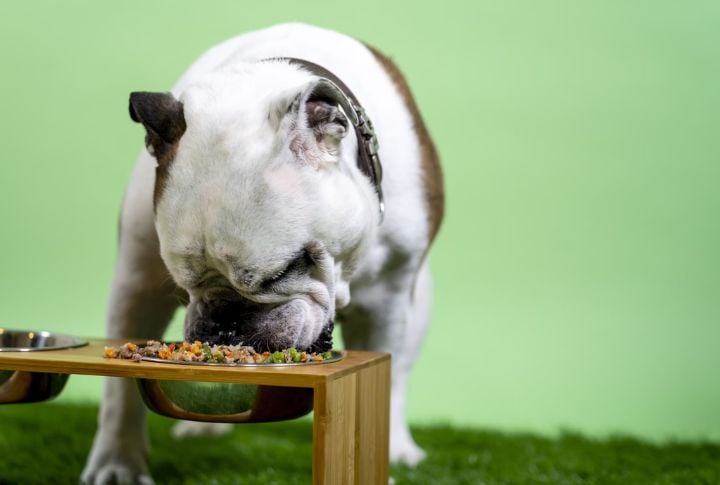
Too much or too little, both can cause problems. When meals aren’t measured, dogs may overeat yet remain nutritionally deprived. Overfeeding might satisfy the gut, but underfeeding starves the essentials. Ditch the guesswork and use a food scale. Your dog’s bowl and feeding portions have to be precise.
Mealtime Rituals Reinforcing Begging

It always starts the same way with the drawer opening, bowl clinking, and fridge humming. Dogs learn patterns fast. Once routines are linked with food, everything triggers excitement. These cues turn average evenings into full-blown feeding anticipation. The ritual becomes the reward, and the hunger sometimes a part of the performance.
High-Calorie Dog Foods

More calories don’t always mean more satisfaction. Energy-dense foods process quickly; some dogs burn through them faster than expected. Especially with high-performance brands, your dog may finish meals and still act empty. What they ate was powerful, just not sustaining in the way you’d think.
Medical Conditions Like Diabetes And Cushing’s
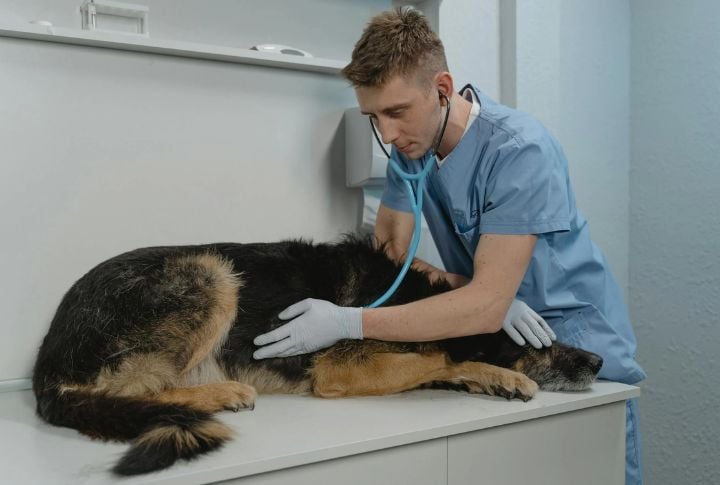
Some dogs eat nonstop yet lose weight like clockwork. Conditions such as diabetes and Cushing’s disease turn meals into empty gestures. Their bodies fail to retain nutrients despite constant consumption. When hunger turns urgent and unrelenting, it might be time for a vet-led diagnostic check.
Boredom-Induced Food Seeking

Boredom loves disguises; it is a sudden obsession with food for many dogs. When the mind’s unstimulated, the mouth starts improvising. Instead of resting, they poke bowls or pretend it’s dinnertime. What they want is a challenge. Shake up the day before hunger fakes its way in.
Human Foods

A greasy snack changes the rules. Dogs who taste rich human food develop a new benchmark for pleasure. Their brains light up, not from need but reward. Ordinary kibble loses appeal. A fallen fry or pizza crust can shift their entire food filter.
Inconsistent Feeding Schedules

Routine builds trust. Without it, dogs stay on edge, anticipating Food that may come in minutes or hours. That uncertainty fuels anxiety, which many dogs express as a food obsession. Missed or delayed meals don’t just shift the clock. They move your dog’s sense of rhythm and reliability.
Breed-Specific Appetite Levels
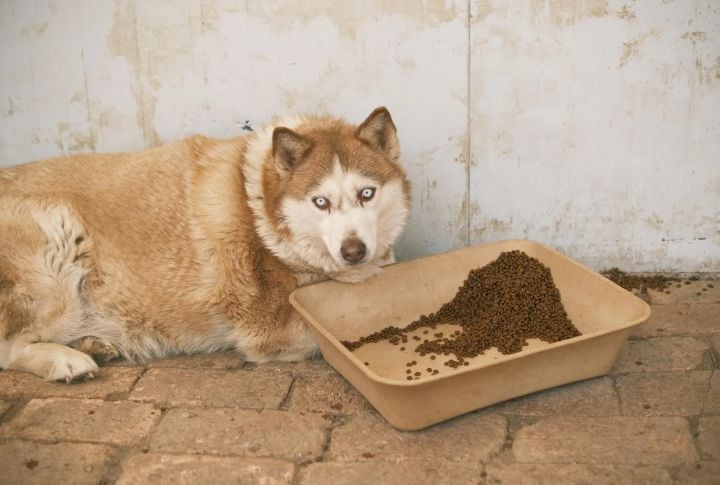
Appetite isn’t always about feeding, sometimes it’s ancestry. Dogs bred for work, like Huskies or Beagles, tend to eat more and ask often. Their systems burn energy on alert. So when a Shepherd begs again, it might be instinct talking. Not every hunger signal means something’s off, it might mean heritage.
Temperature And Seasonal Shifts

As the seasons change, so can your dog’s appetite. Colder weather triggers an uptick in food-seeking for some breeds, driven by ancient survival instincts. They may act hungrier not from need but from preparation. When the thermostat drops, their bellies sometimes act like winter is always coming.
Nutrient Absorption Disorders

Some dogs eat plenty but absorb very little. Disorders like Exocrine Pancreatic Insufficiency (EPI) prevent enzymes from breaking down food into usable energy. The result? Constant hunger. Their bodies remain underfed no matter how full the bowl is. Tests are simple, and with enzymes, symptoms often improve fast.
Low-quality Dog Foods
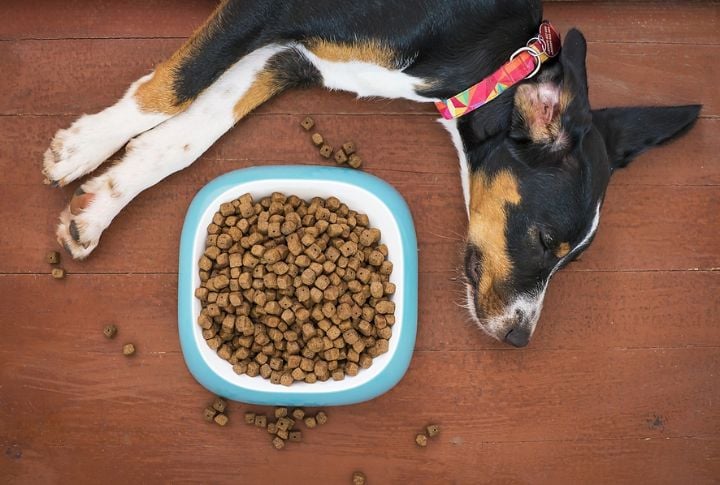
A bowl filled with fillers fools no one; many low-grade kibbles pack bulk but lack digestible proteins and essential fats. The stomach feels full, and hunger returns faster because the nutrients never get stuck. Cheap isn’t always a deal, especially when your dog’s energy feels limited.
Social Mimicry and Group Dynamics
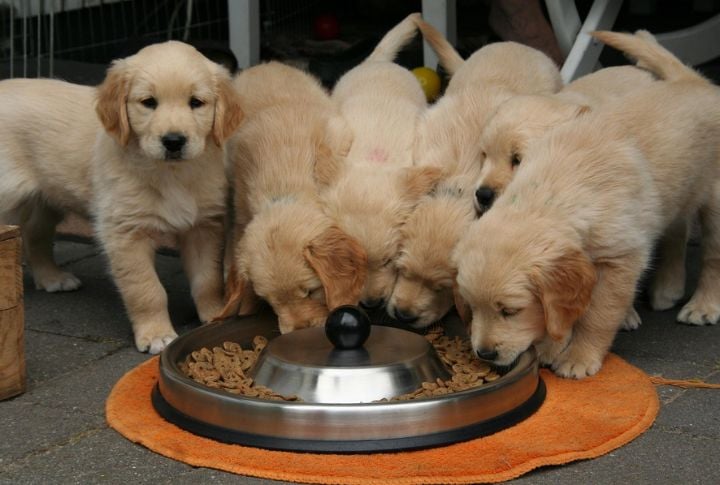
Dogs in multi-pet homes often eat competitively even when they’re not hungry. When one dog shows interest in food, the other mirrors the behavior. It’s pack psychology. Acting hungry becomes a social reflex. Without competition, that sense of urgency often fades on its own.
Post-Exercise Feeding Habits
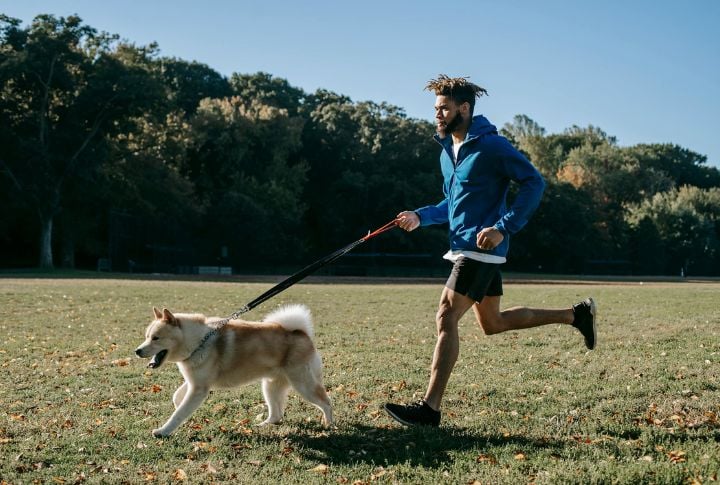
If food consistently follows activity, dogs begin to associate movement with meals. Even brief exercise becomes a signal for hunger. As a conditioned response, the leash jingles, and the belly stirs. Change things up. Sometimes, praise is enough. Feed later; not every pant requires a plate.
Age-Related Metabolic Changes

Old age can bring unusual cravings. Hormonal changes, thyroid shifts, and slower digestion impact how dogs process hunger. Some seniors grow insatiable. Others forget they’ve eaten at all. Appetite changes deserve attention, not assumptions. If your older dog’s eating habits shift sharply, don’t blame age until the labs agree.






